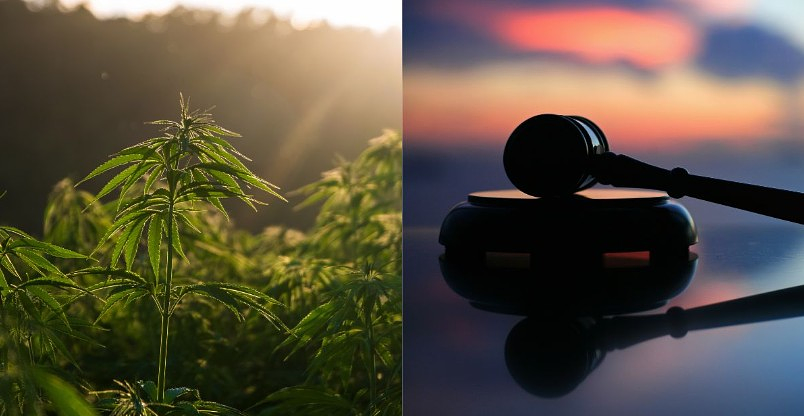
The landscape of hemp regulations in the United States continues to evolve, and North Carolina is the latest state to take center stage with the introduction of House Bill 328. This proposed legislation received unanimous support in both the NC Senate Health and Senate Finance Committees and seeks to regulate hemp-derived consumables, such as delta-8 and delta-9 THC products.
What Does NC House Bill 328 Propose?
House Bill 328, titled “Regulate Hemp-Derived Consumables,” aims to introduce oversight regarding how hemp-derived products are manufactured, marketed, and consumed in North Carolina.
While delta-9 THC, the primary psychoactive component of marijuana, remains illegal in the state, hemp-derived THC products containing delta-9 THC at concentrations of 0.3% or less are federally permitted under the 2018 Farm Bill.
This legislation inadvertently left loopholes, allowing for the rapid proliferation of intoxicating hemp-derived products such as gummies, beverages, and vape cartridges throughout the country.
The NC Senate revised House Bill 328 in an effort to seal this regulatory gap. Key provisions of the bill include:
- Age Restrictions: Sale of hemp-derived consumables will be restricted to individuals aged 21 and older, with additional requirements for age verification during online purchases and deliveries.
- Labeling and Packaging: Products must display consumer safety warnings, ingredient lists, child-resistant packaging, and avoid marketing tactics that target individuals under 21 years old.
- Product Testing: Mandated testing by independent laboratories to detect contaminants like pesticides, solvents, microbial hazards, and heavy metals.
- Licensing Requirements: Retailers and manufacturers must secure licenses to produce or sell hemp-derived consumables.
- THC Limits: Non-liquid consumables will have a maximum of 10 milligrams of Delta-9 THC per serving.
Penalties for noncompliance include civil fines of up to $2,000, license suspension, and possible revocation for repeated violations.
The Ripple Effect of the 2018 Farm Bill
The regulatory dilemma around hemp-derived THC products stems from the 2018 Farm Bill, which legalized industrial hemp products with no more than 0.3% delta-9 THC.
While intended to permit the use and trade of non-intoxicating products such as hemp seeds and CBD, the law failed to fully account for products created through synthetic modifications or the concentration of delta-9 THC into edible forms.
This enabled the rise of products like delta-8 and delta-9 THC gummies and drinks, marketed as legal, hemp-derived alternatives to marijuana. These goods operate in a gray regulatory area with less stringent oversight than legal marijuana products, creating what lawmakers say are public safety challenges.
Critics highlight issues such as inaccurate THC labeling, unverified claims about processing methods, and access by minors.
A National Trend in Hemp Regulation
North Carolina’s efforts to regulate hemp-derived consumables are part of a growing pattern nationwide. A number of states are grappling with the implications of unregulated hemp-derived THC products, with recent examples including:
- California: Governor Gavin Newsom has proposed turning an emergency ban on intoxicating hemp-derived products into permanent state law, emphasizing public health concerns and the potential for minors to access these goods. California has already banned some products like delta-8 and restricts marketing and distribution practices.
- Texas: Governor Abbot is mulling over Senate Bill 3, which would ban hemp-based products containing delta-9 THC entirely. This has sparked criticism about the potential economic impact on the state’s $8 billion hemp industry, which supports over 50,000 jobs.
- Oregon and Washington: Both states have implemented tighter restrictions on intoxicating hemp cannabinoids, with special focus on transparency in labeling and limiting THC potency in consumables.
While proponents of hemp regulation point to consumer safety risks and the lack of testing oversight as critical reasons for reform, critics argue that restrictive policies may unintentionally push consumers into the illicit market. Concerns about enforcement capacity and job losses within the rapidly growing hemp industry further complicate the conversation.
The Role of Public Health and Policy Enforcement
For North Carolina, the motivation behind HB 328 aligns closely with public safety. According to Senator Amy Galey via WRAL, one of the sponsors of the Senate bill, the legislation is intended to “make sure that what is being sold in our communities [contains] no toxins, no synthetics, and [is kept] out of the possession of minors.”
The enforcement of this regulatory framework will fall under the Alcohol Law Enforcement (ALE) division, tasked with licensing inspections, testing compliance, and penalizing violations.
Supporters, including North Carolina Attorney General Jeff Jackson, consider the bill necessary to bridge existing regulatory gaps before products like delta-9 THC gummies and vapes gain further popularity among younger demographics.
Senators behind the legislation hope to achieve a level of transparency and safety akin to regulations already applied to traditional cannabis markets in legalized states.
However, it remains unclear whether these measures will strike a balance that satisfies public health advocates, industry stakeholders, and consumers.
Where Does Hemp Regulation Go From Here?
The unanimous support for NC HB 328 and similar bills at the state level highlights a larger, national reckoning with the hemp industry.
States continue to confront the unintended consequences of the 2018 Farm Bill, using a combination of licensing requirements, age restrictions, and testing mandates to regulate intoxicating hemp-derived products.
The key question, however, centers around how effective these measures will be at addressing public safety concerns while keeping the economic promise of the hemp industry.
State lawmakers must craft regulations that prevent harm while supporting innovation and accessibility.
For better or worse, hemp-derived cannabinoids like delta-9 THC are moving toward tighter controls across the United States.
